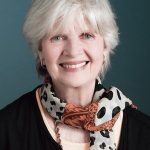May 10th, 2017
BIO Board member Cathy Curtis asked Candice Millard, winner of the 2017 BIO Award, to respond to a list of questions about her experiences as a biographer. Her thoughtful emailed replies appear below. You won’t want to miss Millard’s keynote speech at this year’s BIO Conference, on May 20 in Boston.
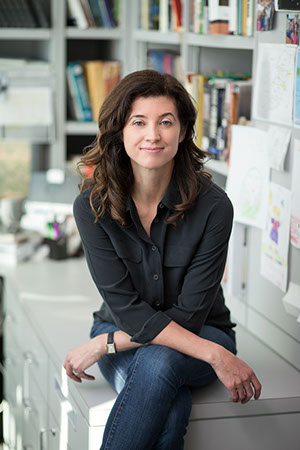 Cathy Curtis: What prompted you to start writing biographies?
Cathy Curtis: What prompted you to start writing biographies?
Candice Millard: I have always been interested in biography. In fact, one of the best parts of my job at National Geographic was looking for story ideas that focused on human history rather than natural history. So, when I thought of writing my first book, I immediately knew that I wanted it to be about someone, not something. But I also wanted a story, not a subject. I didn’t want to begin at the beginning and end at the end. I was looking for a story within a life.
CC: Are there biographers who have helped shape your own style or approach?
CM: The list of biographers I admire is extremely long, so I’ll start with those who have perhaps had the greatest impact on my own work: Barbara Tuchman, David McCullough, Martin Gilbert, Robert Caro, William Manchester, Laura Hillenbrand, Doris Kearns Goodwin, Ron Chernow, Stacy Schiff, Antony Beevor, Andrew Roberts. I could keep going. . . .
CC: Do you tend to sift through numerous potential subjects before you find “the one”?
CM: I spend a great deal of time looking for the right subject. In fact, I think it’s the most important part of writing a book. I’m looking for not only a great story, but one that comes with enormous amounts of primary resources, so much that I despair of ever getting through it all.
Without mountains of letters, journals, newspaper articles, it’s difficult to have dialogue; all the little details that, I hope, make readers feel as if they’re there; and a deep understanding of the story and the people within it. I’ve fallen in love with book ideas in the past and spent months, even years researching them, only to realize that there just wasn’t enough primary source material. As difficult as it was, I had to walk away.
CC: You have written, “What interests me more than moments of public triumph or infamy are instances of private trial and struggle, when no one can hide their weaknesses—or indeed their strengths.” Is this the thinking that led you to “slice of life” biographies, as opposed to the traditional cradle-to-grave format?
CM: Like any thinking person, I highly value biographies that take in the full expanse of a person’s life, and I read a lot of them. But when I’m looking for a subject for myself, I’m interested in stories that are intimate, focused, and, I hope, illuminating. To me, the most illuminating moments in a life are when a person is at his or her most vulnerable, when they’re searching for a foothold, unsure of the path forward, frightened, grieving, even desperate. These are emotions we’ve all experienced, and they help us understand each other, help us find that thread of common humanity.
CC: Are there key research or writing tips you gleaned from working on The River of Doubt that you were able to use in writing your next two books?
CM: The greatest lesson The River of Doubt taught me is the importance of outlining. I don’t know if this is true for other writers, but I am lost without an outline, and not just a basic sketch of how the book will unfold but a long, incredibly detailed outline that helps me think through every step of the story.
CC: How have events in your own life contributed to your understanding of your subjects?
CM: As I get older, I feel like I understand my subjects a little better because I’ve had more of those shared experiences. I’ve seen more of the world, experienced more joy, more sorrow, even tragedy, and because of that when I peer into someone else’s life I can see a little of myself. Maybe because of that I have more compassion, I hope, and am not as quick to judge. I don’t know anyone who’s perfect. I’m certainly not. And that’s what interests me—not the perfect person, but the person who struggles, as we all do.
CC: I’ve read that you align work on your books with your children’s school schedules—an inspiration to all of us who have other demands on our time. Was it difficult at first to use your limited time wisely?
CM: While I love my work, and feel incredibly lucky to be able to do it, it comes in a very distant second place to my children. Surprisingly, however, what I’ve realized over the past 15 years is that being forced to work around my kids’ schedules is actually not a bad thing. I don’t know that I would have the discipline to get right to work every morning if I knew that I had all day to get it done. Knowing that I only have between drop off and pick up is incredibly helpful. I get up, get dressed, take the kids to school, and then go to work.
My office is in my husband’s company, so I’m not home, thinking about the laundry waiting to be done or the Legos that are scattered all over the floor. As soon as I step into my office and close the door, I’m in another place and time. To be honest, it’s a little disorienting when I have to go pick up the kids, but I leave myself notes so that I can pretty easily jump back in the next morning.
CC: What has been your biggest challenge as a biographer?
CM: Wrapping up the research. There’s always another lead to follow, another archive to visit, another storyline to investigate and that, to me, is the best part of the job. I love doing research, and I would be very happy to keep doing it for years on end, but eventually I have to start writing or I will never finish the book.
CC: Tell us about a memorable moment on one of your book tours.
CM: I have been very fortunate to be able to meet many of the descendants of the people I’ve written about, not just the central characters but the people surrounding them, from Candido Rondon’s grandchildren to Winston Churchill’s granddaughter. I’ve really enjoyed meeting them all, but no one has made a stronger impression on me than Bob Garfield, James Garfield’s great-grandson.
I spent some time with Bob, who is now the patriarch of the Garfield family, while I was doing research, and I remember thinking that he was one of the finest people I had ever met—kind, smart, a skilled pianist, and the consummate gentleman. When Destiny of the Republic was released, Bob attended a talk that I gave at Garfield’s farmhouse in Ohio, where Bob had spent much of his childhood. After I spoke, he stood up and said that the book had meant a great deal to him and his family and that it had “brought a ghost to life.” I will never forget that moment. It made me very proud.
CC: What are you working on now?
CM: I just started work on a book about the discovery of the source of the Nile. It’s a story that I fell in love with many years ago, when I was still working at National Geographic, so I’m thrilled to finally have the chance to really dig in and understand it.
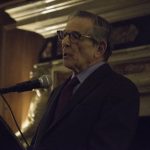
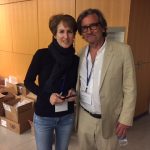
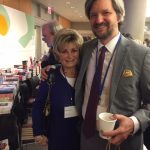
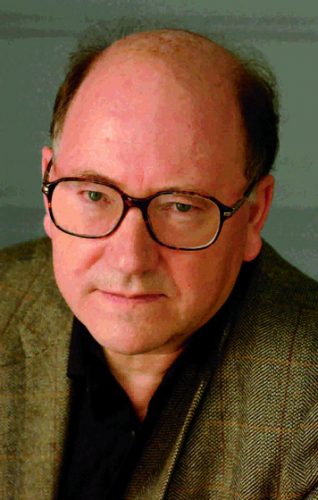
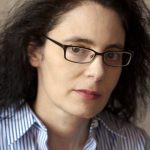
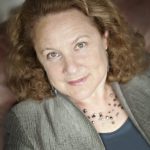
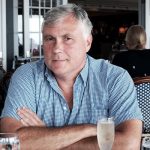
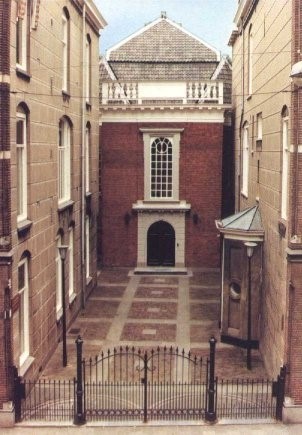
 Biographers International Organization will convene on the weekend of May 18–20, in Manhattan, for three days of discussion, camaraderie, and exploration. “BIO is especially pleased that this year’s conference will be hosted by CUNY and the Leon Levy Center for Biography,” said program co-chairs Heath Lee and John Farrell. “The scope of expertise that these two organizations, devoted to biography, bring to the table is stunning.”
Biographers International Organization will convene on the weekend of May 18–20, in Manhattan, for three days of discussion, camaraderie, and exploration. “BIO is especially pleased that this year’s conference will be hosted by CUNY and the Leon Levy Center for Biography,” said program co-chairs Heath Lee and John Farrell. “The scope of expertise that these two organizations, devoted to biography, bring to the table is stunning.”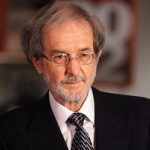
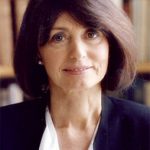
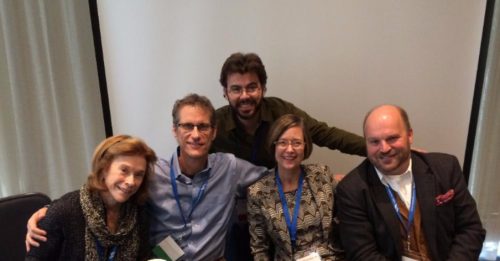
 Cathy Curtis: What prompted you to start writing biographies?
Cathy Curtis: What prompted you to start writing biographies?